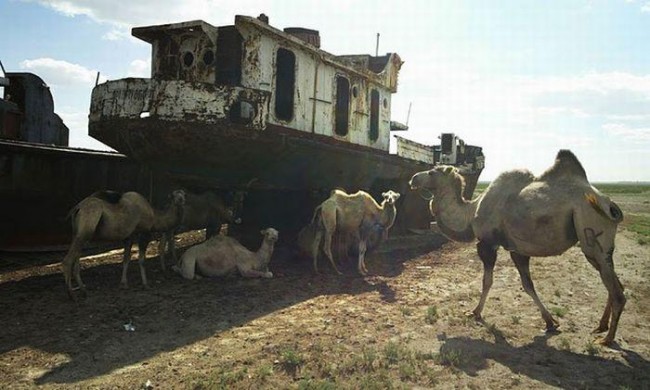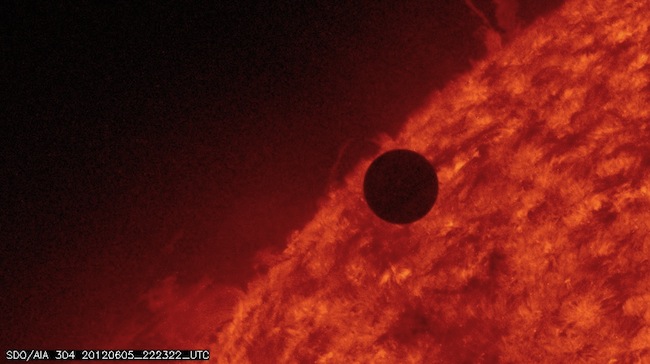Multiple-exposure image by Christoffer Relander. Thanks to Dave Riddell for the link.
Lately I have been thinking about moving. My lease is up in January and for complex reasons I’m not inclined to renew it. This has given me the chance to ask, once again, Where am I meant to live?, What is my place in this world? Thirty months ago I asked that question and, after creating a bunch of charts of comparative criteria, ended up here, on Bowen Island.
It’s not at all clear that I should stay here: It’s a very unsustainable place, now run by developers in the process of clear-cutting a huge swath of the island for the exclusive use of 50 billionaires (thanks to Chris Corrigan for the second link). They seized control when the progressive thinkers and greens on the island were out-manoeuvred by the island’s frenzied right-wing libertarian core over the proposed creation of a (shudder!) large national park run by them guvernmint folks in Ottawa. Can’t have them outsiders tellin’ us residents we can’t cut down all the trees on our own property! Bowen Islanders import almost everything, and most work on the mainland, commuting by car and ferry every weekday. And, truth be told, I haven’t made many friends here, in part because I’m away a lot, but in part because I’m fussy about who I befriend and haven’t found the chemistry right.
But the problem isn’t really the Bowen Islanders and their libertarian, conservative British ways. The reason I haven’t really felt I belong here is within myself — I don’t feel I belong anywhere. I’m the problem. All this Transition talk about the importance of community rings hollow for me, not because it isn’t valid, but because I don’t feel part of any community. Community is local, place-based, rooted to and in love with the land. In a recent blog post British Transitioner Charlotte Du Cann says it perfectly:
I kept hearing the word [Community]. In Bisbee, Arizona, in Oxford, England and then everywhere I went in Transition. People with a dreamy look in their eye, uttering the special mantra that transcended everything. Community! Pretty soon I worked it out. “Community” didn’t mean people in the district, it meant a group of people like yourself, who loved you for who you were, who made you feel good. Imaginary friends and neighbours, ideal playmates in a rocky time. Maybe this is why the word Community alienated me. How can you be part of someone’s else’s idea?…
Belonging is the core of everything. We have to be home first before we go anywhere near the future. Otherwise we will always be operating from the past as “non-belongers” – working from outside in, when we need to be working from inside out. What I learned travelling is that belonging doesn’t depend on those alliances with friends or colleagues you once knew (or perhaps still know). It doesn’t depend on having a community you can call your own, or being tapped into the conventional circles made by institutions, by church, school, or family. Belonging is belonging to humanity, to the earth, knowing that how you act and move and give every day matters.
Belonging is loving the world wherever you are… It’s knowing that being in a place doesn’t depend on the people who live in the district, or what they think of you or you them. Belonging is something impersonal, and because it’s impersonal it’s more intimate, more generous than any idea of community. It’s feeling at home [everywhere, embracing] the vernacular of everywhere.
We can talk carbon emissions and climate change, we can talk community and Transition, we can think in numbers and statistics, tell our horror stories and hopeful visions, but nothing will change outwardly, the way we all wish it would (which is to say for real), unless we come from this kind of affection for the places we live in… Until we start belonging to the trees and the wind and feel our feet on the ground, at home with perfect strangers in all places, we are going nowhere. All our conversations – peak oil, peak money, peak everything – will be stuck within an old paradigm. Stuck in me and my idea of the world, separate from you.
It’s writing and insights like this that keep me involved with Transition despite my joyful pessimism that we can ever hope to prepare for a world we don’t want and cannot bear to imagine, but which is our dark future as surely as the sixth great extinction of which it is a part.
PREPARING FOR CIVILIZATION’S COLLAPSE
Walking Away from Environmentalism: Orion offers a conversation among three of the best post-civ writers and thinkers, Dark Mountain’s Paul Kingsnorth, Deep Green Resistance leader and Derrick Jensen colleague Lierre Keith, and Spell of the Sensuous author David Abram. I’ve written sympathetically about the work of all three, who represent the trajectory of my “environmental” sensibilities, from Abram’s faith in our innate biophilia, to Keith’s militant direct action advocacy (block it, break it, or take it), to Kingsnorth’s resignation that we cannot prevent or significantly mitigate civilization’s collapse, so we should focus instead on living and loving joyfully (but respectfully) in the moment.
Descent Into Stasis: I’ve written a fair bit about the fact that no one is in control of complex systems, which continue by their own momentum and, like cars careening over a cliff, are unstoppable until they crash on their own. John Michael Greer writes eloquently about this in a recent post about how those with power today only really have veto power, the power to prevent change. Excerpts:
The ability to plunder one corner of a complex system is not the same thing as the ability to control the whole system, and the freedom with which so many people pillage the institutions they’re supposed to be managing could as well be understood as a sign that there’s no center of power willing or able to defend the core interests of the US empire against death by financial hemorrhage. The only power the executives of, say, Goldman Sachs need is the power to block any effort to stop them from stripping their bank to the bare walls for their personal enrichment, or to cut them off from the access to tax dollars that’s made that process so lucrative…
Examples of the same sort of thing can be multiplied endlessly, and they aren’t limited to corporations…
The power exerted by each of these groups is by and large a veto power. They may not be able to get new policies through the jungle of competing interests in Washington, a task that is increasingly hard for anyone to manage at all, but they can prevent policies that are not in their interest from being enacted, and they can defend any policy already in place that benefits them or furthers their ability to loot the system. They have that veto power, in turn, because no one in contemporary America has the power to get anything done without assembling a temporary coalition of competing power centers, each of which has its own agenda and each of which constantly has its hand out for the biggest possible share of the take. [The result being stasis, power gridlock, with no group able to bring about change, or respond effectively to new crises.]
The Big Reset: John Robb explains how the accumulation of monstrous, unrepayable debts is pushing us to global economic collapse by the end of next year. How to prepare? Live resiliently, he says. Become a producer rather than a consumer and help your community do the same. But then, as I discuss above, what does “your community” mean, exactly?
The Tipping Point: A special scientific study done for Rio+20 suggests (yet again) that we are near or beyond the tipping point of runaway climate change, species extinction, ecosystem collapse, and sudden food/resource system collapses. And (yet again) their warnings and data were shrugged off by politicians, economists, business interests and planners who didn’t want to hear it. Thanks to David Hodgson for the link.
LIVING BETTER
Living in a Horse-Drawn Caravan: John Owen and Magic spent six years on the road in the UK living a wondrous life with neither house nor car.
Machine-Free Biointensive Gardening: A new review of John Jeavons’ 1974 permaclassic How to Grow More Vegetables includes some fascinating data on food security from the book:
- By the latter part of this century, at current rates of exhaustion, virtually all of the world’s topsoil will have been used up. Agriculture will then be totally dependent on annual application of fertilizers and chemicals, almost all oil-derived, and irrigation. Modern industrial agriculture destroys (uses up) an average of 6 pounds of topsoil and nutrients for each pound of food produced.
- Biointensive organic permaculture requires 4,000 sf of carefully-nurtured land (and 300 gallons of water per day) to feed one vegan, 7,000 sf if using farm equipment, fossil fuel additives and chemicals. By contrast it takes about 48,000 sf — over an acre — (and 4,000 gallons of water per day) to feed one carnivore using industrial agriculture.
Natural Learning: A mindmap by Jane Hart, Harold Jarche and Jay Cross is full of gems for enabling effective group learning, such as:
- Make room for pull: Empower learners to choose what they need to know, their sources, their networks.
- Give simple guidelines and trust people to self-direct their learning. Be open to being asked and providing assistance (mentoring and facilitating, instead of ‘teaching’).
- Trust the wisdom of the crowd. Let the “communities of practice” self-organize and self-manage.
- Drive decision-making to the front line, the user, not top-down.
- “Real learning is all about experience, practice, conversation and reflection — no more, no less” — Charles Jennings
- 5-minute limit for online materials at a stretch. Encourage more talking and less writing. Facilitate conversation, discussion, and sense-making.
- Make it easy for people to create and share peer-to-peer multimedia materials.
- Recognize the limitations of ‘courses’ and use them only when and as appropriate.
Reduce, Reuse, Recycle, Refuse, Repair: Amsterdam has started “repair cafes” where people can bring in worn, torn and broken items to be fixed for free, by people who like to fix things. Thanks to Tree for the link.
Veganism By the Numbers: A new infographic explains how going vegan helps the environment in five important ways.
Alternative Economies in a Nutshell: A clever video from the Sustainable Economies Law Center not only explains some of the legal pitfalls facing new economy experiments (e.g. the cost and bureaucracy involved in getting FDA approval or organic certification), it pretty well sums up in 9 minutes what alternative economies are all about. Thanks to Tom Atlee for the link.
Prison Meditation: In India’s largest prison, classes in Vipassana meditation, free to all inmates, are bringing about an astonishing transformation. Thanks to Liz McLellan for the link.
Camels seek shelter from the sun in the shade of hulks of sunken fishing and cargo ships, in what, before water diversion and desertification, was the Aral Sea, once the world’s fourth largest lake. Photo circulating by e-mail, source unknown.
POLITICS AND ECONOMICS AS USUAL
Ultra-Rich Hiding $21-32T in Tax Havens: A new research study finds that 92,000 people, just 0.001% of the world’s population, collectively have secreted between 21 and 32 trillion dollars in offshore tax havens where it is not reported in public disclosure statements, computed in wealth disparity statistics, or subjected to income, wealth or property taxes. Driven by unbounded greed and selfishness, they represent the world’s largest tax cheats — and greatest thieves — in civilization’s history.
Biggest Act of Civil Disobedience in Canada’s History: More than 100,000 people turned out to protest Quebec’s draconian Bill 78, which essentially outlaws and criminalizes all forms of protest. The spontaneous revulsion of the people to this unprecedented clamp-down on free speech spread across the country, with cities all over Canada ringing out with the sounds of clanging pots and pans in solidarity with the Quebec people, and as a warning to the similar-minded federal government, which orchestrated the 2010 G20 spectacle of undercover cops posing as ‘black bloc’ members to smash windows for the alerted mainstream media TV cameras, and then unleashed foreign-directed police thugs in full paramilitary armour to beat and torture thousands of innocent protesters, all to justify the billion dollar price-tag for the neofascist spectacle. The right-wing Quebec and federal governments have joined forces to defend the law, which Quebec’s human rights commissioner says flagrantly violates the charter of rights, and which the UN has condemned as part of an “alarming trend” of Canadian violations of citizens’ human rights. It’s getting much worse here in Canada since the Harper government won another 40% “majority” government and has begun a Bush-style gutting of social and environmental laws and the defamation, de-funding and censorship of environmental and science groups, to the point Canadian scientists have taken to the streets in protest.
Tar Sands Watch: After proposed pipeline builder Kinder Morgan refused to disclose its planned route for a tripling of the size of its tar sands pipeline through Metro Vancouver, an NDP MP paid personally to have the route mapped. It goes through many lower-income neighbourhoods and requires governments to allow expropriation of and construction access to personal residences. The Big Oil-Alberta-Federal Government lobby group only needs one of three possible routes approved to export the bitumen sludge for offshore refining, the other two routes being the US overland route and the Northern BC route to Chinese markets via tanker. It’s the corporatists versus the people, including all affected First Nations. Guess who will win? If it’s the corporatists, NASA’s Jim Hansen predicts that alone will produce runaway climate change.
Don’t Mention Income Inequality Please, We’re Entrepreneurs: Salon’s Alex Pareene justifiably skewers TED talks for censoring talks that criticize its rich corporate benefactors, calling TED “a massive money-soaked orgy of self-congratulatory futurism.”
FUN AND INSPIRATION
An image from a time-exposure of last month’s Venus transit of the sun. It takes a while to load, but it’s worth it.
Candle, Extinguished: One of the world’s most moving and articulate bloggers, Bonnie Stewart has stopped blogging. I mourn the loss of writing like The Wind That Shakes the Barley.
Illuminatus vs Atlas Shrugged: Let us now compare mythologies. Very funny. Thanks to David Hodgson for the link.
Every Black Hole Contains a New Universe: Another interesting theory about our universe, this one recursive: Every black hole contains a new universe, and every universe contains an infinite number of black holes. I can hear the scientists desperate for a theory of everything howling from here. Thanks to Sam Rose for the link.
Brandenburg Concerto #3 on Mandolin: The amazing Chris Thile’s new band Punch Brothers plucks Bach’s strings. More Punch here, and here.
THOUGHTS OF THE MONTH
From Orion Magazine, by Reg Saner:
NIGHT COYOTES
To our dog three coyotes howled
where he was from. “Come back,
come back,” they called, “home
to the wild where the dark is hard
as bone, sweet as the marrow
inside.” Three coyotes howled
and our dog barked in return.
To say that he heard and remembered.
That he heard but would not come.
From Sam Taylor:
THE BOOK OF ENDINGS
Some time while you read this page or the next one, a species – a species as vast as your life and the lives of all your ancestors chasing bison across Old Europe or huddled around a fire – will disappear. A species that has found its own ways of eating, of moving, of hiding from predators; a species that meets itself and makes love in the bark of a tree or on the leaves of the canopy or in the humid dirt.
And it has come with us for millions of years, for millions of years it has watched the night and day follow each other, it has breathed with the frogs, it has wrapped the stars around it like a blanket, a patterned music, a map.
At the beginning of this page there may have been three or four left, but now there is only one. And if you read this page again, it will be another one, another species, another story of four billion years telling itself for the last time. Wherever life began – a word, a wish breathed into water, a seed falling through space – it was all of us there – as it is now in this unknown last one.
It has bored into wood, it has carried water on its back, it has drunk the dew from its back in the desert, it has fed its young with strips of leaves, it has built homes out of bark, it has carved the sky into a song, it has spoken in ways no man has heard.
It has emerald wings, it has sapphire wings, it has wings of night. You will never see it.
It is already gone.








I am reminded of a story my brother in law told me once, every time I feel I don’t have a community. He was in a small fishing town in Japan and asked a person he met if he was from the town they were in. The man said no. So he asked him when he had moved to the town and the man said 500 years ago. Even nomadic people like the Roma Gypsies, Central Plains Native Americans, and North African nomads brought their communities with them. Our current energy abundance has allowed us to become crazed individualistic nomads, which may take generations to repair.